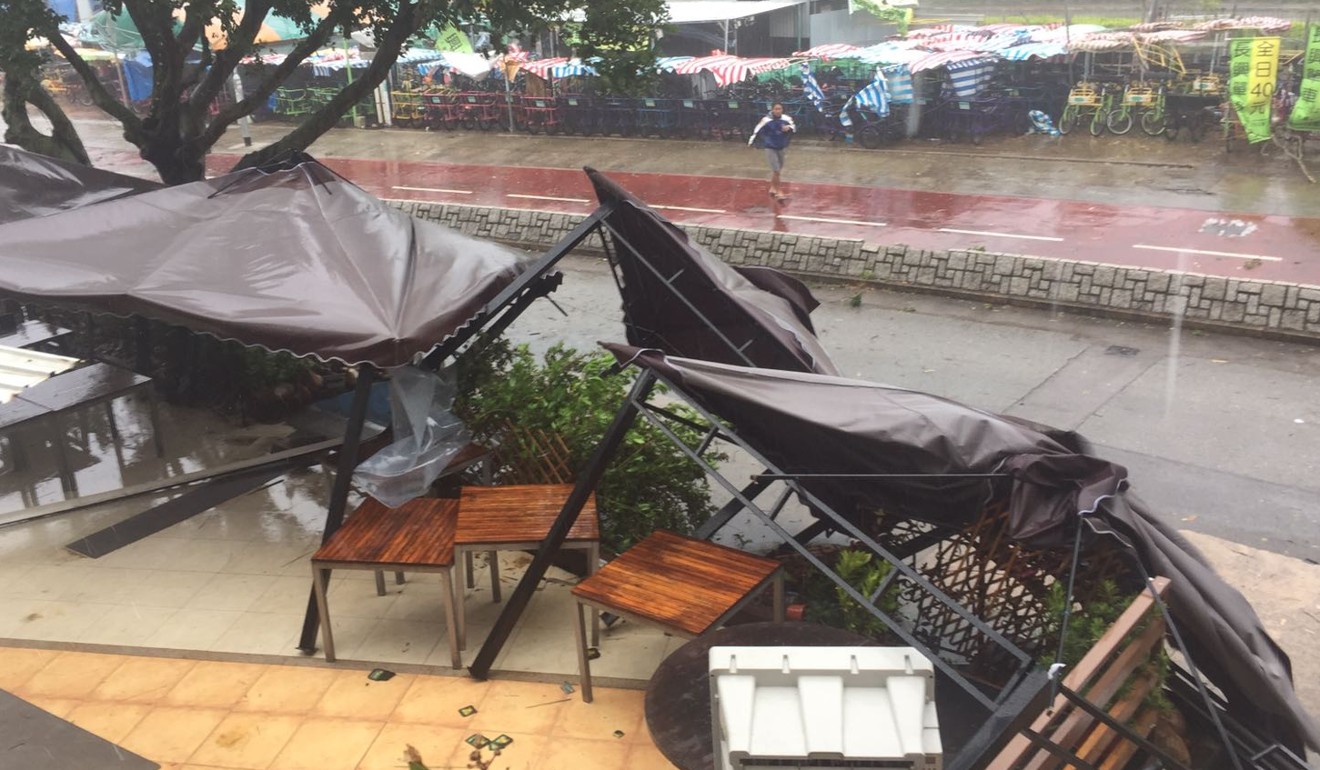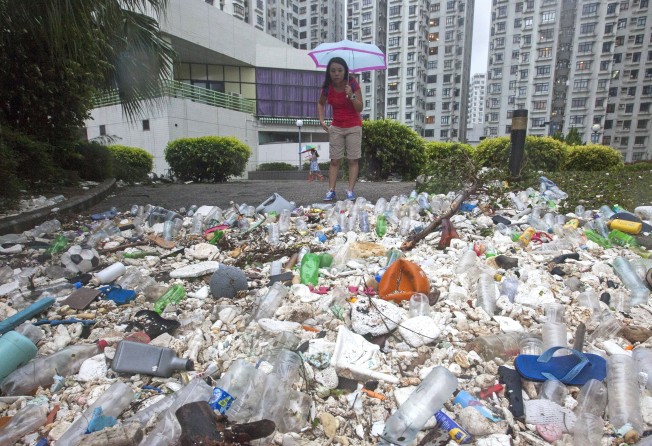
Typhoon Hato could cause HK$8 billion in losses after No 10 signal storm brought Hong Kong to standstill
Industries across city expected to have taken a major hit as storm brought businesses, stock market and air travel to a standstill

A paralysed stock market, business closures, flight cancellations and the suspension of public transport were some of the disruptions caused by Typhoon Hato on Wednesday as market analysts put the economic cost to the city at anywhere between HK$4 billion and HK$8 billion.
A typhoon signal No 10 – the highest in Hong Kong’s storm warning system – was issued in the morning, and later downgraded throughout the day.
It was only the 15th No 10 signal since 1946, with the last being Typhoon Vicente in July 2012.
With the typhoon signals of No 8 and above in place, most shops throughout the city remained closed, but some others braved the extreme conditions.
At a shop on Hennessy Road in the Causeway Bay tourist district, bakery assistant Ah Mei stared at several freshly baked bread rolls, untouched on shelves, because the shop had received few customers despite staying open for business.
“There has hardly been anybody today, ” Ah-Mei said. The shop had opened at 8.30am with its bread baked overnight and arriving at the outlet as usual in the morning despite the typhoon warning.

Meanwhile a nearby congee shop on Canal Road West had also opened for business because its staff came to work too early in the morning and were stuck when the weather took a turn for the worse.
“I got here at about 4am,” a waitress surnamed Kwan said.
She said about 70 per cent fewer patrons than usual visited the shop that day.
Dylan Bryant, Hong Kong manager and head of North Asia at insurance firm Swiss Re Corporate Solutions, said according to internal research, the economic impact on Hong Kong from a typhoon classified as No 8 or above was about HK$4.29 billion.
The figure was calculated by combining the business losses of major sectors in a large scale typhoon. These industries include transport, tourism, marine, financial services, agriculture, event organising, entertainment, public administration and import-export firms.
However, Chinese University associate professor of economics Terence Chong Tai-leung put the economic loss caused by Hato at about HK$8 billion, based on the average value of the gross domestic product generated in one day, taking reference from last year’s figure.
Hato forced Hong Kong to cancel trade on its stock and futures’ market on Wednesday, while at the airport, only one flight managed to land between 6am and 5pm.
A restauranteur, surnamed Wu, who has been selling local fare on Causeway Bay for 20 years, said he decided to open for business despite the storm, as he had to make money to pay the rent.
“The rent is so expensive. If the workers can get here, why not open?” Wu said.
Wu said customer turnout was about 60 per cent of usual numbers, with most patrons for the day being tourists.
In addition to losses sustained by retail shops and restaurants, the travel industry also took a hit, with many outbound tours cancelled or postponed.
Hong Thai Travel, one of the biggest travel agencies in the city, cancelled 13 tours and postponed nine more on Wednesday, affecting about 550 customers, according to its director Jason Wong Chun-tat.
At Sunflower Travel, more than 10 tours to Japan, Thailand, Taiwan and mainland China were cancelled, affecting about 360 travellers.
EGL Tours, an agency focusing on travel in Japan, said about 1,200 customers were affected by the typhoon, as some could not fly out of the city and others could not return from overseas.